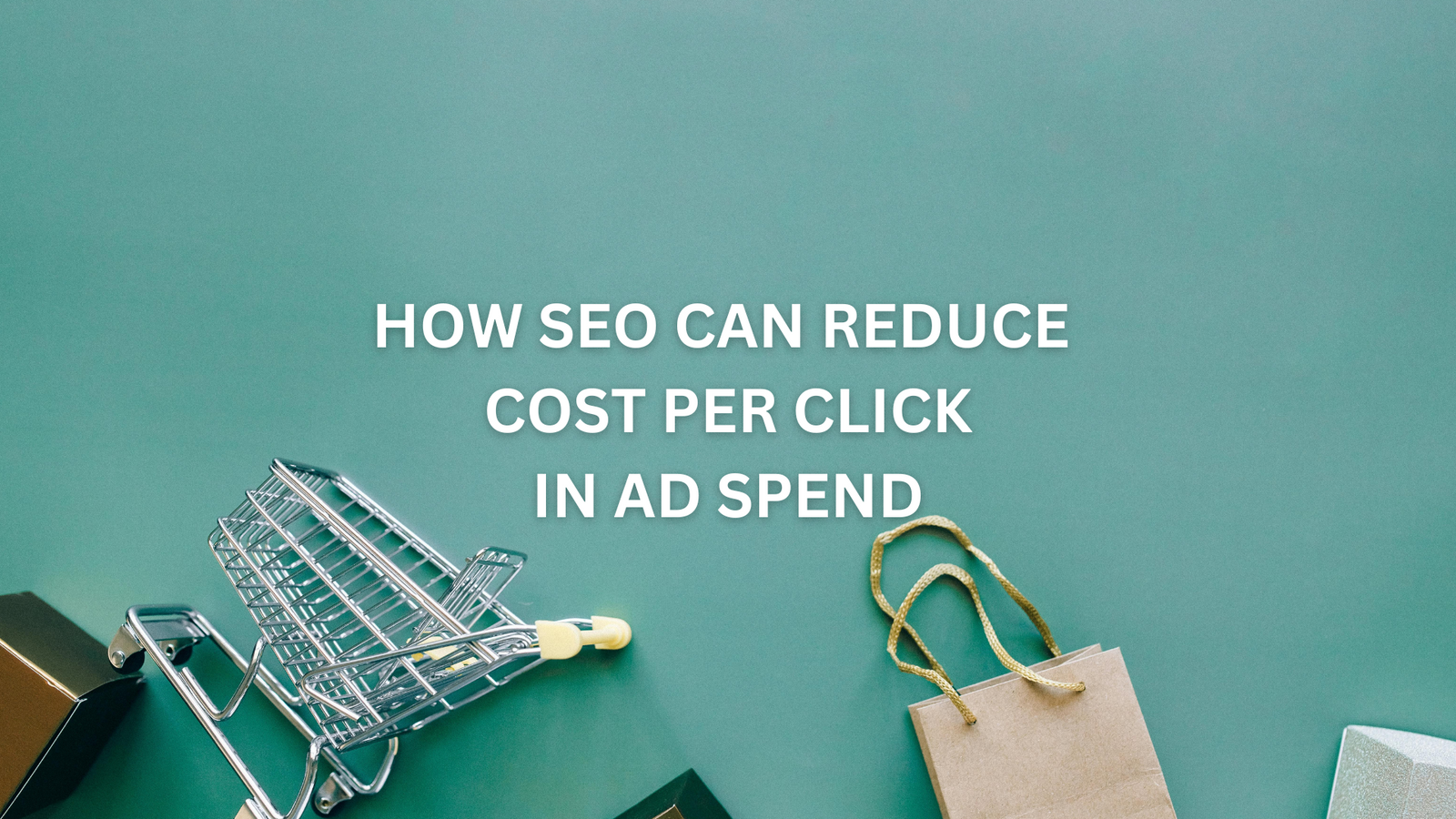How Focusing on SEO Can Reduce Your Cost Per Click

It might sound like it shouldn't work, it might even sound contradictory, but smart business owners all know one key way to reduce their Cost-Per-Click (CPC) advertising costs - and that's SEO.
SEO enhances your website's relevance to specific keywords, drawing in potential customers who are actively seeking your products or services and crucially telling the algorithms of companies such as Google, YouTube, Amazon and Facebook that you're increasingly relevant for particular keywords and topics, lowering your overall advertising costs.
But, we're getting ahead of ourselves, here's the deep dive detail on why your best optimisation approach for advertising might not be about specific advertising tweaks at all...
Like this post? Want to be the first to get more like it? Subscribe to our newsletter for free.
In need of a digital agency to take your business to new heights? We can help.
How SEO Content Boosts PPC Performance
By creating high-quality, SEO-optimised content, you can significantly enhance your website's visibility in search engine results pages (SERPs). This increased visibility leads to organic traffic, which, in turn, positively impacts your CPC campaigns. Here's how:
-
Improved Quality Score:
- Relevance: Relevant, high-quality content aligns your ads with user search intent, improving your Quality Score.
- Click-Through Rate (CTR): Engaging content attracts more clicks, boosting your CTR and lowering your cost-per-click (CPC).
-
Lowered CPC:
- Stronger Ad Rank: A higher Quality Score and a better ad position lead to lower CPCs.
- Reduced Competition: Improved organic rankings can reduce competition in the auction, resulting in lower bids.
-
Increased Conversion Rates:
- Informative Content: Well-crafted content educates potential customers, making them more likely to convert.
- Enhanced User Experience: A seamless user experience, driven by relevant and engaging content, increases conversions.
Key SEO Content Strategies to Reduce PPC Costs
-
Keyword Research and Optimisation:
- Identify High-Intent Keywords: Use tools like Google Keyword Planner to discover keywords with high search volume and commercial intent.
- Optimise Content: Strategically incorporate keywords into your content, including titles, meta descriptions, headers, and body text.
-
Create High-Quality Content:
- Engaging Blog Posts: Publish informative and engaging blog posts that address your target audience's pain points and questions.
- Comprehensive Landing Pages: Develop persuasive landing pages that are optimised for conversions and aligned with your PPC ads.
-
Build Backlinks:
- High-Authority Backlinks: Acquire links from reputable websites to increase your domain authority and search engine rankings.
- Guest Posting: Contribute guest posts to relevant blogs to build brand awareness and generate backlinks.
-
Local SEO:
- Google My Business Optimisation: Claim and optimise your Google My Business listing to attract local customers.
- Local Citations: Build citations on local directories to improve local search visibility.
-
Technical SEO:
- Mobile-Friendliness: Ensure your website is mobile-friendly to provide a seamless user experience.
- Page Speed Optimisation: Optimise your website's loading speed to improve user experience and search engine rankings.
Integrating SEO and PPC for Maximum Impact
To truly maximise the impact of your marketing efforts, it's crucial to integrate SEO and PPC strategies. Here are some tips:
- Shared Keyword Strategy: Use the same keywords in both SEO and PPC campaigns to reinforce brand messaging and increase visibility.
- Complementary Content: Create content that supports both organic and paid search efforts, such as blog posts, infographics, and videos.
- A/B Testing: Experiment with different ad copy, landing pages, and targeting options to optimise both SEO and PPC performance.
- Data-Driven Insights: Utilise analytics tools to track the performance of both SEO and PPC campaigns and make data-driven decisions.
By combining a strong SEO strategy with well-executed PPC campaigns, you can significantly reduce your advertising costs while driving more qualified traffic to your website. Remember, SEO and PPC are not competing strategies; they are complementary tools that can work together to achieve your business goals.
Like this post? Want to be the first to get more like it? Subscribe to our newsletter for free.
In need of a digital agency to take your business to new heights? We can help.




Leave a comment